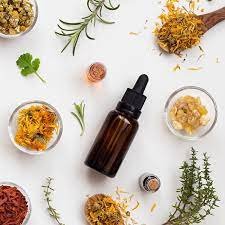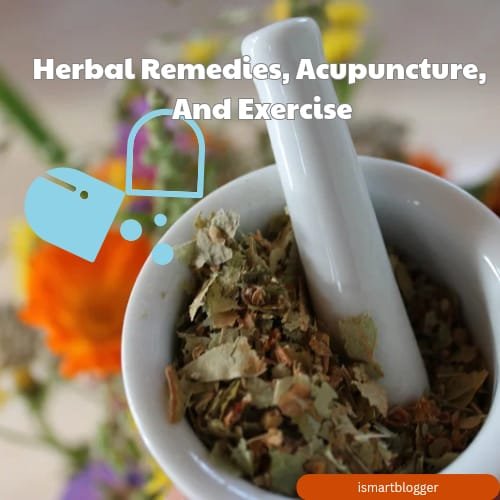This article discusses alternative treatments for anxiety, including herbal remedies, acupuncture, and exercise. While traditional treatments such as therapy and medication can be effective for managing anxiety, alternative treatments can also help reduce symptoms. The article explores different alternative treatments, their effectiveness, and how they can be incorporated into a self-care routine. The article emphasizes that while alternative treatments can be helpful, it’s essential to seek professional help if experiencing severe anxiety symptoms.

5 Alternative techniques to Treat Anxiety
Fortunately, there are several alternative treatments available that can help reduce anxiety symptoms and improve overall well-being. By exploring these options, individuals with anxiety can find the approach that works best for them and achieve a better quality of life.
Mind-Body Techniques
Mind-body techniques are becoming increasingly popular as alternative treatments for anxiety. These techniques involve practices that focus on the connection between the mind and body, such as meditation, yoga, deep breathing exercises, progressive muscle relaxation, and tai chi. By practicing these techniques, individuals can learn to regulate their breathing, reduce muscle tension, and focus their attention on the present moment. This can help reduce anxiety symptoms by calming the mind and body and promoting relaxation. In fact, research has shown that mind-body techniques can be effective in reducing anxiety and improving overall mental health.
Herbal Remedies
Another option for managing anxiety is through the use of herbal remedies. Herbal remedies have been used for centuries to promote relaxation and reduce stress. Some of the most popular herbal remedies for anxiety include kava, passionflower, valerian root, and chamomile. These herbs have natural calming properties that can help reduce anxiety symptoms. Kava, for example, has been shown to be effective in reducing anxiety in clinical studies. Passionflower is another herb that has been used for centuries to reduce anxiety, and it has been found to have similar effects to prescription medications in some studies. Valerian root is also commonly used to promote relaxation and reduce anxiety symptoms. It has been found to be effective in improving sleep quality, which can be beneficial for those who experience anxiety-related sleep disturbances. Chamomile is another herb that is often used for its calming effects and has been found to reduce anxiety symptoms in some studies. While herbal remedies can be effective for reducing anxiety, it’s important to speak with a healthcare professional before using them to ensure they are safe and appropriate for your specific needs.
Dietary Changes
In addition to mind-body techniques and herbal remedies, dietary changes can also be an effective way to manage anxiety. Consuming a diet rich in essential nutrients, including omega-3 fatty acids and magnesium, has been shown to reduce symptoms of anxiety. It is important to avoid or limit the intake of caffeine and alcohol as they can worsen anxiety symptoms. Additionally, consuming a healthy, balanced diet that includes a variety of fruits, vegetables, and whole grains can also help to manage anxiety. Incorporating these dietary changes along with other alternative treatments can lead to significant improvements in overall mental health and well-being.
Acupuncture
Acupuncture, a traditional Chinese medicine practice, has been gaining popularity as an alternative treatment for anxiety. This technique involves the insertion of thin needles into specific points on the body to promote relaxation and reduce stress. It is based on the idea that the body’s energy, known as Qi, flows through specific pathways, or meridians, and that blockages in these pathways can cause physical or emotional symptoms, including anxiety. By inserting needles into specific points along these meridians, acupuncture is believed to help balance the body’s energy and reduce anxiety symptoms. Studies have shown that acupuncture can be an effective treatment for anxiety, with some participants reporting reduced anxiety and improved overall well-being after receiving acupuncture sessions.
Exercise
Finally, Exercise is an excellent way to manage anxiety and improve overall mental health. Engaging in regular physical activity has been shown to reduce stress and anxiety and promote relaxation. Exercise releases endorphins, which are chemicals in the brain that act as natural painkillers and mood elevators. Any type of exercise can be helpful, but some forms of exercise may be particularly effective for anxiety. Yoga, tai chi, and other forms of gentle movement can help reduce stress and anxiety by combining physical activity with deep breathing and relaxation techniques. Additionally, regular exercise can help improve sleep quality, boost self-esteem, and provide a sense of control over one’s physical and mental well-being. Overall, incorporating exercise into your daily routine can be a beneficial and effective way to manage anxiety symptoms.
Conclusion
In conclusion, there are several alternative treatments available for managing anxiety, including mind-body techniques, herbal remedies, dietary changes, acupuncture, and exercise. While these treatments may not be a substitute for professional help, they can be a helpful complement to traditional therapies. It’s important to find the right combination of treatments that work for you, and to seek professional help if you’re experiencing severe anxiety symptoms. With the right tools and support, it’s possible to manage and reduce anxiety symptoms, leading to a better quality of life.





